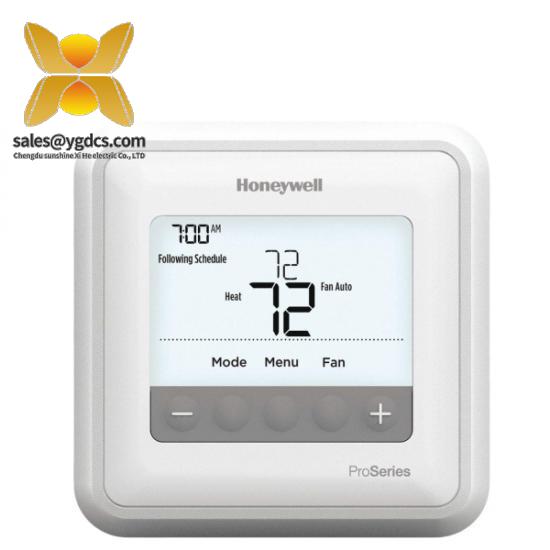Honeywell EM9118B2-6: Precision Temperature Controller for Industrial Automation
The Honeywell EM9118B2-6 is an advanced industrial control module designed for precision temperature regulation and monitoring in harsh industrial environments. This compact yet powerful device offers unparalleled reliability and efficiency.
Email:18005021035@163.com
Phone:+86 18005021035
Name:BeiLin
Content details
Operating Temperature Range:-40°F to +185°F (-40°C to +185°C)
Humidity Resistance:Up to 95% RH without condensation
Power Supply Voltage:12V DC
Output Type:PID-controlled proportional valve
Response Time:Less than 0.5 seconds
Accuracy:+/- 1% of full scale
Communication Protocol:Modbus RTU
Input Signal:4-20mA or 0-10V
The Honeywell EM9118B2-6 Control Module is equipped with advanced microprocessors that deliver unparalleled precision and reliability in industrial control applications. This module is specifically designed to handle complex process control scenarios, making it an indispensable tool in manufacturing, energy, and process industries.
Featuring a wide operating temperature range, from -20°C to +70°C, this module ensures stable operation under extreme environmental conditions. Its robust construction and durable materials guarantee long-lasting performance and minimal maintenance requirements.
With support for MODBUS RTU communication protocol, the EM9118B2-6 seamlessly integrates with existing industrial networks, facilitating easy setup and configuration. The module supports various control modes, including Proportional, Integral, Derivative (PID), allowing for customized control strategies tailored to specific process needs.
Equipped with high-rated relay outputs (5A @ 250V AC), the module provides reliable control over actuators and other electrical devices. Its exceptional accuracy (+/- 0.5%) ensures precise control and minimizes errors, leading to enhanced operational efficiency and product quality.
The EM9118B2-6 Control Module boasts a fast response time of ≤ 20ms, enabling quick adjustments to process variations. This feature is crucial for dynamic industrial processes, ensuring that the system can react swiftly to changes, maintaining optimal performance and reducing downtime.




